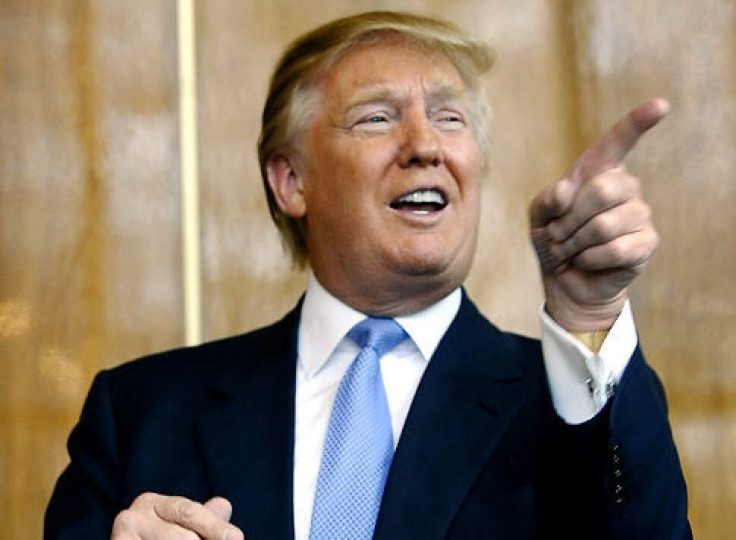Presidential Race 2016: Donald Trump Is Leading In The Republican Polls; Mental Health Experts Explain Why

Donald Trump has elicited more than his fair share of controversy. He is loud, politically incorrect, and unapologetic — several qualities his opponents say make him unfit for leadership. It is these polarizing traits, though, that his supporters seem to admire, and part of what has kept him ahead of the pack in the race to become the Republican presidential candidate.
Why is Trump so appealing? What is it about him that has garnered so much support? Several psychiatry and political psychology experts weighed in with The New York Times, and they offered a few theories on Trump’s success.
One of the most common explanations centered on security. David Berg, a clinical professor of psychiatry told The Times that Americans are facing threats from both inside and outside of the country with issues like income inequality, immigration, and ISIS. There is nowhere to hide from these threats, he said, so we are forced to confront them.
“At some level, deep within our primitive consciousness, those regions of the brain that process fear before the cerebral cortex construct a story to explain it,” Berg said. “We are in search of someone to help us fight what we perceive as both internal and external threats to our ‘group’ as if such a fight will make us safe.”
Psychotherapist Joseph Burgo supported this idea, saying that Trump’s personality could be perceived as one that would be useful if the country were threatened.
“For many people, Trump’s braggadocio, contempt, and grandiosity come across as self-confident strength,” he said. “When frightened by dangers from abroad or here at home, many people gravitate to the ‘strong man’ who promises to vanquish their fears and confusion.”
Trump’s brutal honesty was also cited several times by the experts, who said it was refreshing for voters sick of the political correctness of the present day.
“Many in this country are tired of having their speech and behavior constrained by the changing ‘sensibilities’ of the modern world,” Berg said. “Many would like to ‘stand up’ to Putin and the Chinese (to say nothing of ISIS) in the belief that confrontation and belligerence will make the world safer.”
Stanley Robinson, a political scientist at CUNY and a psychoanalyst, explained that Trump is confronting the ideas that no one wants to talk about, and representing the electorate that feels it isn’t being listened to.
“Trump gives voice to the feeling of dismissal and mines the anger,” Robinson said. “And what is that anger, it’s the anger of ordinary Americans who feel they have been lied to, that the policies they have been promised don’t work, and, by and large, they feel they have not been taken into account. Trump says to them, “You are right. Watch me, I am making them take me into account. I’ll do the same for you.”
Trump’s personality, even despite its representations of security and honesty, is a draw in and of itself, according to John Gartner, a professor of psychiatry at Johns Hopkins Medical School and a practicing psychologist. He explained that Trump represents a particularly American ideal: a risk-taking, domineering, charismatic entrepreneur.
“He is flooded with ideas. He is driven, restless, and unable to keep still. He channels his energy into the achievement of wildly grand ambitions,” Gartner said. “He can be euphoric. He becomes easily irritated by minor obstacles. He is a risk taker. He overspends in both his business and personal life. He acts out sexually. He sometimes acts impulsively, with poor judgment, in ways that can have painful consequences.”
These traits are largely responsible for compelling loyalty, but Gartner warns that the qualities that “get you elected are not the same as the capacity for governing.”
Published by Medicaldaily.com



























